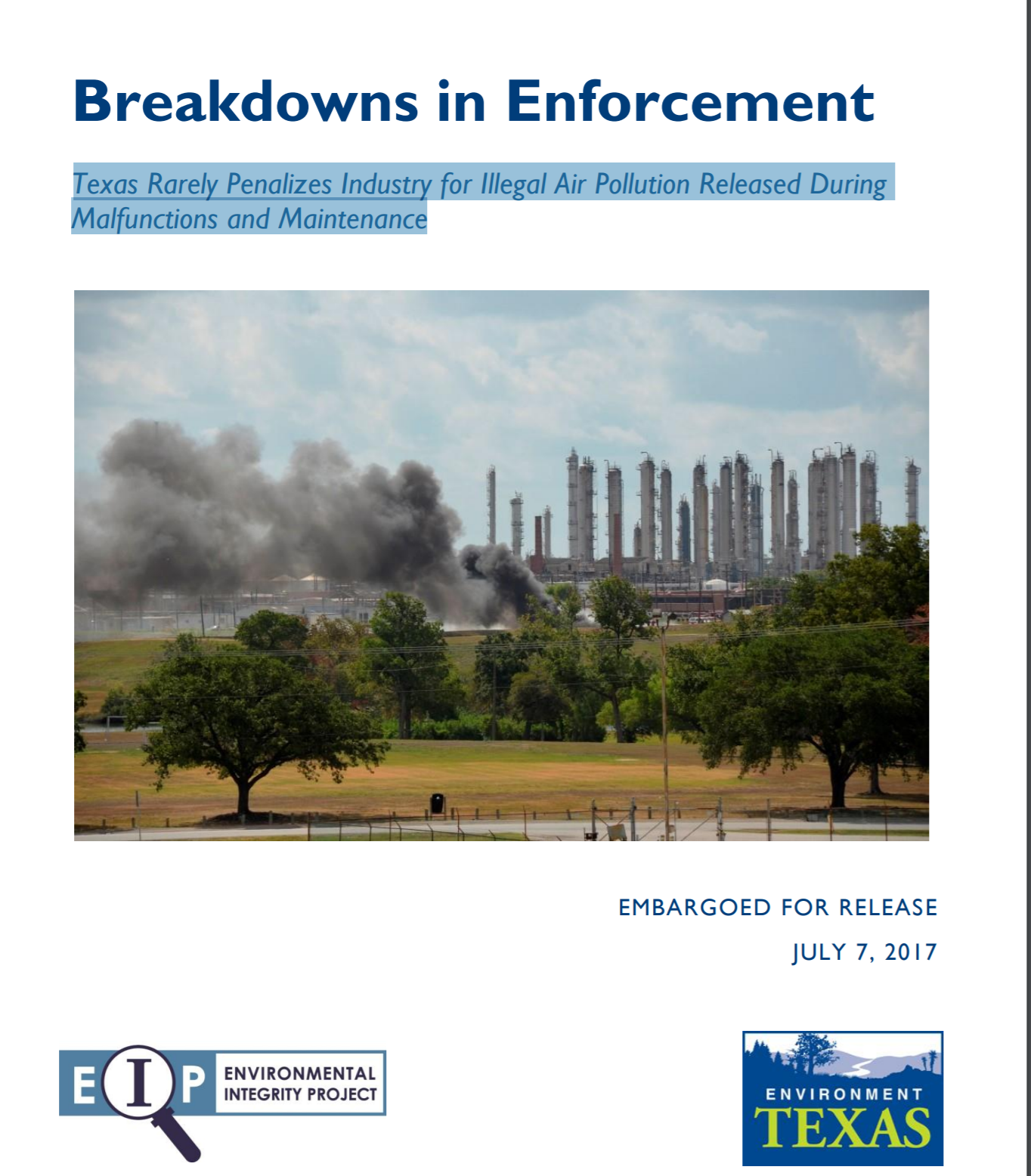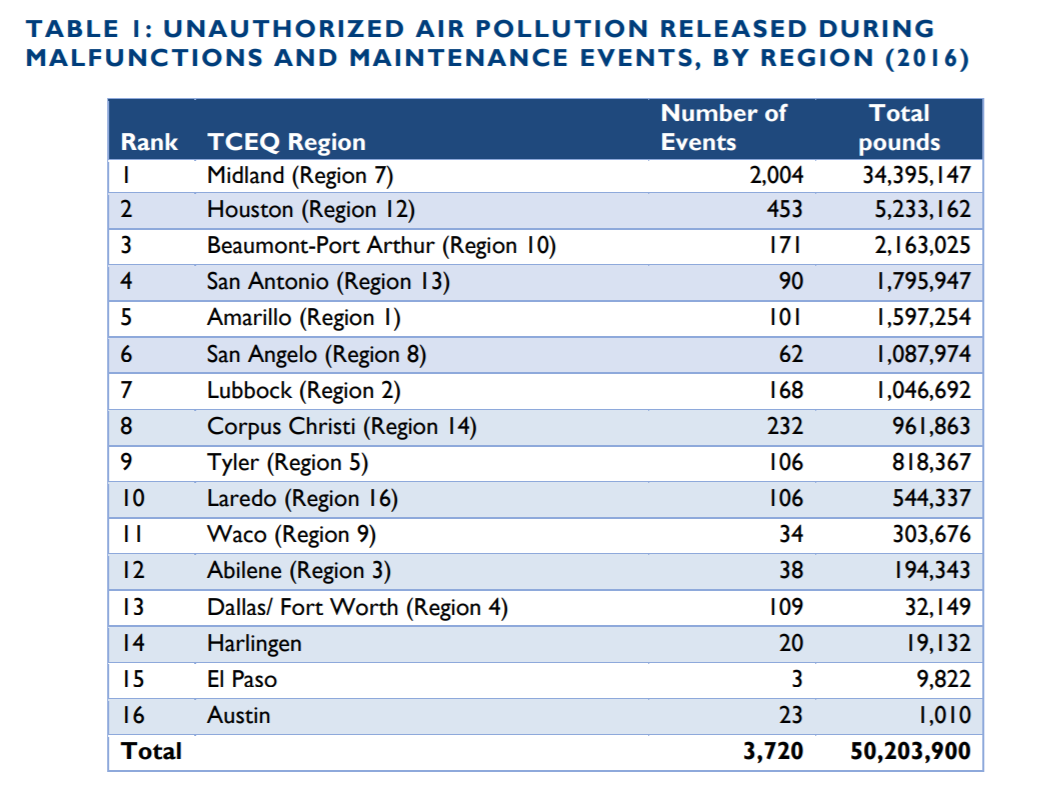Breakdowns in Enforcement
Texas Rarely Penalizes Industry for Illegal Air Pollution Released During Malfunctions and Maintenance
A review of five years of state records by the Environmental Integrity Project and Environment Texas shows that the state imposed penalties on less than 3 percent of the illegal pollution releases (588 out of 24,839) reported by companies during maintenance or malfunctions from 2011 through 2016, even though the incidents released more than 500 million pounds of air pollution.

Downloads
For years, petroleum refineries, chemical factories, power plants and other industries in Texas have argued that they should not be held responsible for much of the air pollution they release because they claim a loophole from permitted limits for industrial malfunctions or maintenance. But the law and increasingly the courts do not support such a claim. An example of this was the April 26, 2017, decision by a federal judge in Houston to penalize ExxonMobil $20 million for emitting 10 million pounds of pollutants from its Baytown refining and chemical complex during malfunctions and maintenance over eight years.
It is significant, however, that this penalty was not initiated by the state of Texas, but instead by a lawsuit brought by local residents represented by Environment Texas and the Sierra Club. The State of Texas claims primary responsibility for enforcing antipollution laws, but itself rarely takes action against companies for allowing dangerous amounts of soot, sulfur dioxide, benzene and other pollutants to escape from plants during what industry calls “upset” events. A review of five years of state records by the Environmental Integrity Project and Environment Texas shows that the state imposed penalties on less than 3 percent of the illegal pollution releases (588 out of 24,839) reported by companies during maintenance or malfunctions from 2011 through 2016, even though the incidents released more than 500 million pounds of air pollution.
The penalties assessed by Texas for this illegal pollution amounted to the equivalent of only three pennies per pound. The small size and infrequency of these fines is a major problem, because operators are less likely to spend the money required to fix known plant issues when fines for illegal pollution are not severe enough to offset the economic benefit of delaying investment in plant repairs and upgrades.
This report uses state data to spotlight Texas’s worst industrial air polluters in 2016, based on unauthorized air pollution releases. The data is the most recent available that companies self reported to the state for emissions that resulted from equipment breakdowns, operator error, and maintenance activities. Key examples of illegal pollution releases in 2016 that have not yet resulted in penalites include:
- Between February 24 and March 3, 2016, at the Amerada Hess Seminole Gas Processing Plant in West Texas (Gaines County), a loose wire and operator error resulted in a plant shutdown and release of 578 tons of sulfur dioxide. According to a report filed by the company, the shutdown might have been avoided, but the plant’s “alarm was configured improperly” and operators did not become aware of the problem until it was too late.
- In 2016, the Houston Refinery, owned by LyondellBasell, reported five separate illegal releases that individually exceed the total amount of such pollution the plant discharged in 2015. For example, a leaking connection at the plant released 54,286 pounds of volatile organic compounds in less than an hour and a half on May 2, 2016. Short, intense pollution spikes like this pose a serious threat to millions of Houstonians, including the 316,000 people who live within five miles of the plant.
- In January and February of 2016, an oil and gas operator in Garden City, Texas, reported production in excess of what the facility’s equipment was capable of capturing. This resulted in the release of 300,000 pounds of natural gas volatile organic compounds (VOCs) and 800 pounds of benzene, a carcinogen, from the facility’s storage tanks.


